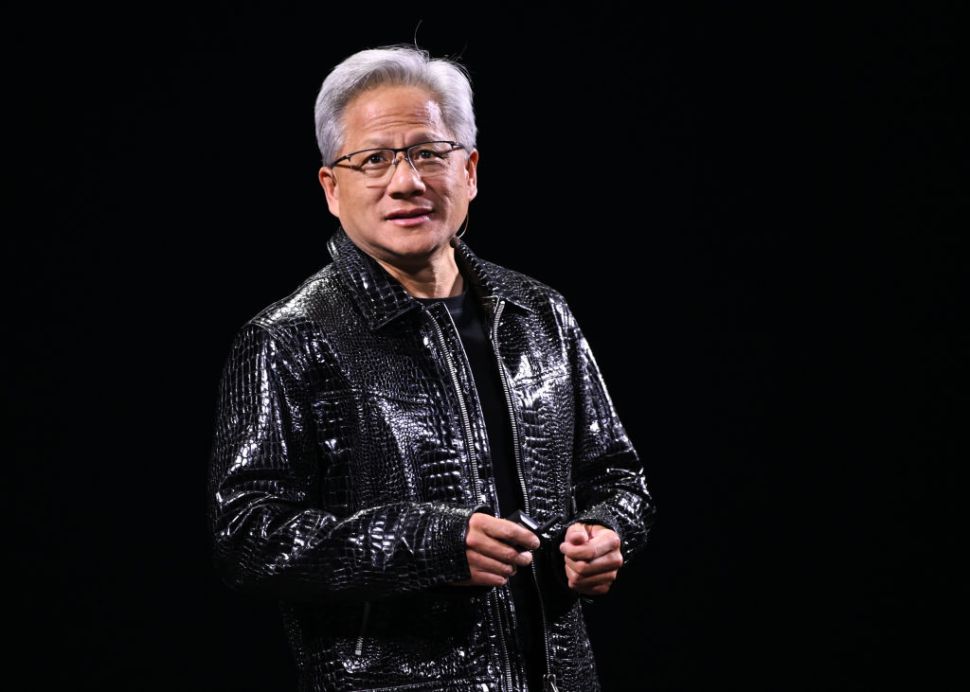“Very useful quantum computers are still a few decades away,” Nvidia CEO Jensen Huang said during a keynote presentation at the 2025 Consumer Electronics Show (CES) in Las Vegas last week. His comment sent shockwaves through the quantum computing industry, with shares of leading companies like Rigetti Computing, D-Wave Quantum and IonQ plummeting between 30 and 50 percent. These companies’ CEOs were quick to defend their industry in a bid to win back investor confidence.
“Jensen Huang has a misunderstanding of quantum. He is ‘dead wrong’ about D-Wave,” Alan Baratz, CEO of D-Wave Quantum, which develops quantum computing systems, told Observer. “There is more than one approach to building a quantum computer. Our (D-Wave) systems are performing scientific computations on important problems that are not solvable by even massively parallel GPU systems.”
D-Wave uses quantum annealing, an approach that excels in solving specific computational optimization problems. This method is particularly useful for materials simulation, scheduling and logistics applications. “Commercial quantum computing is already here,” Baratz added. For example, Canada-based Pattison Food Group reduced an 80-hour scheduling task to 15 hours using D-Wave’s technology. Another client, NTT DOCOMO, Japan’s largest telecom provider, slashed the time to optimize network resources from 27 hours to just 40 seconds.
Quantum computing CEOs are also talking up their companies’ revenue and profit prospects. D-Wave estimated its 2024 sales jumped 120 percent from the previous year. IonQ, which makes quantum computers, predicts it will turn a profit on more than $1 billion in sales by 2030, CEO Peter Chapman wrote in a blog post on Jan. 10.
What is quantum computing?
Quantum computing relies on qubits—units of data that can exist in multiple states at once—and holds the potential to quickly solve calculations that would take even supercomputers a thousand years. Exciting recent developments include Google’s Willow chip, which solved a random circuit sampling (RCS) benchmark problem in just five minutes. RCS, one of the most challenging benchmarks for quantum computers, would take today’s fastest supercomputer 10 septillion years (1 followed by 24 zeros) to solve, Google claims.
However, showcasing potential is different than consistently solving problems. “Quantum systems are highly susceptible to environmental noise, which can disrupt quantum computations. Nick Harris, CEO and co-founder of Lightmatter, an Alphabet-backed photonic computing startup, told Observer. “The breakthrough of Google’s Willow chip does not apply to all quantum computing hardware platforms, and the reality today is that scaling up is nowhere near a given.”
Other major challenges include scaling qubit systems while preserving their coherence and connectivity, as well as improving qubit fidelity. “Even with error correction, individual qubit operations still carry a non-zero error rate. Reducing these errors further is essential for achieving reliable computations,” Harris explained.
The quantum computing industry is projected to reach $2 trillion by 2035, according to McKinsey & Company. However, Huang’s remarks brought that lofty vision back down to earth. Huang predicted it would be 15 to 30 years before quantum computing is commercially viable. Daniela Herrmann, co-founder of Dynex, a quantum-as-a-service company, partially agrees with that assessment. “Huang’s extended timeline reflects the broader understanding of the challenges in achieving fully developed quantum systems, but it doesn’t fully acknowledge the progress being made by existing quantum-inspired applications,” Herrmann told Observer. She noted that Huang’s remarks seem to keep the spotlight on initiatives like Nvidia (NVDA)’s CUDA-Q, which is yet to solve real-world problems at scale.
The quantum computing industry is making meaningful strides
Quantum computing companies, including Phasecraft, Zapata Computing and Algorithmiq, are making notable strides in developing algorithms that can leverage the limited capabilities of existing quantum hardware. Moreover, advancements in quantum computation optimization are also being spearheaded by the University of Chicago and Stanford University, with recent initiatives focusing on optical computing and exploring its applications in quantum technologies.
“Advanced language model A.I. tasks that previously required extensive resources are now being completed with 90 percent less computational overhead,” Herrmann said.
“Many tangible business cases don’t necessarily require a universal (gate-model) quantum computer to provide advantages,” Anders Indset, chairman of Njordis Group, a VC firm investing in quantum technology companies, told Observer. “Recent sharp dip seems more like a near-term market correction than a final verdict on quantum’s future. ”
Indset believes that Huang’s own economic interests in the field could influence his desire to slow down potential competitors. “While Jensen Huang’s caution may reflect the tough realities ahead, history shows that breakthroughs can come faster than expected,” he said. “A.I.’s voracious need for compute resources is pushing the industry to explore new hardware frontiers—quantum included. Once quantum machines achieve a certain threshold, they could supercharge A.I. by making specific training or inference tasks dramatically faster.”

